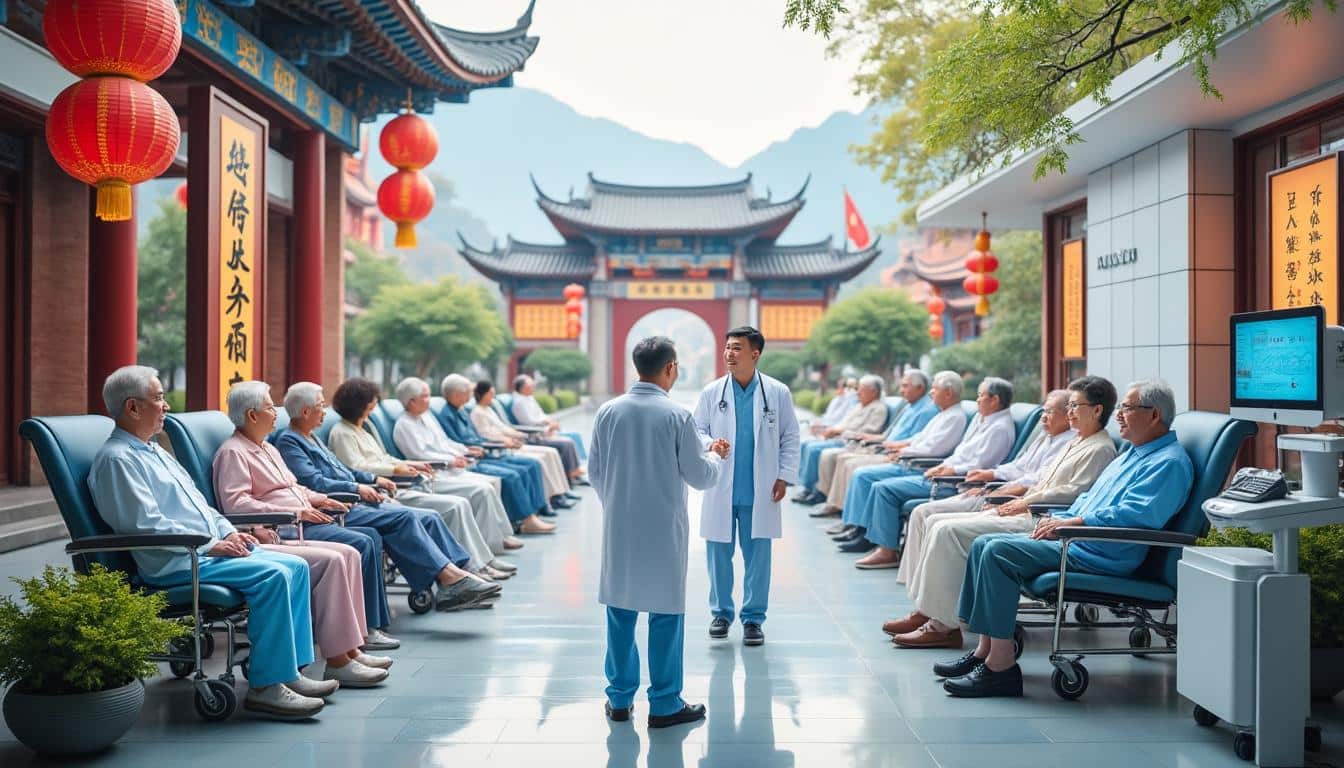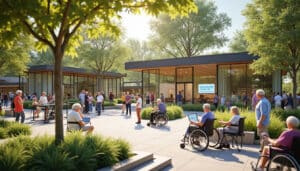Cookies and data are at the heart of your online experience.
They allow for the maintenance of the services you use daily.
But their use raises numerous questions about privacy.
We use these tools to track service interruptions, protect against spam, and measure public engagement. By choosing “Accept all”, you also enable the development of new services and the distribution of personalized advertisements. If you prefer “Reject all”, we will respect your choice by limiting the use of cookies to essential features. For more information, you can manage your privacy settings at any time.

medical tourism and its impact on senior care
Medical tourism is experiencing explosive growth, particularly among seniors seeking quality care at competitive prices. In China, this trend is revolutionizing the way seniors access healthcare services, offering not only advanced medical treatments but also a culturally enriching experience. Chinese healthcare facilities are investing heavily in modern infrastructure and employing highly qualified professionals, thus attracting international clients eager to combine medical care with discovery.
how medical tourism stimulates the silver economy in China
The rise of medical tourism is a powerful driver for the silver economy in China. By attracting thousands of international seniors each year, this sector generates substantial revenues that ripple across various economic segments such as hospitality, catering, and transportation. Moreover, recent government initiatives, like the development of new subsidies, reinforce this economic dynamic. For example, the emergence of the silver economy in China thanks to new government subsidies perfectly illustrates the state’s commitment to supporting this key sector.
the benefits of medical tourism for seniors
Seniors benefit from multiple advantages thanks to medical tourism. First of all, they have access to treatments that are often cheaper than in their home country, without compromising the quality of care. Additionally, the opportunity to combine medical care with vacations allows patients to recover in a relaxing and stimulating environment. This model also promotes a more holistic approach to health, integrating both mental and physical well-being. Furthermore, companies like Dr B Dental Solutions capitalize on this trend by offering dental solutions tailored to the specific needs of seniors, thereby strengthening their position in the market.
challenges and solutions in medical tourism for seniors
Despite its many advantages, medical tourism also presents major challenges. Language barriers, cultural differences, and concerns related to the confidentiality of medical data are obstacles that need to be overcome. To address these issues, Chinese healthcare facilities are implementing multilingual services and cultural awareness programs. Moreover, data protection is becoming a top priority. By using advanced technologies, these facilities ensure secure management of personal information, thereby guaranteeing the trust of international patients.
the importance of data and privacy in medical tourism
In the context of medical tourism, the management of personal and medical data is crucial. Facilities must ensure the protection of sensitive patient information by using secure systems for data storage and transmission. This also includes the implementation of strict policies regarding the use of cookies and data tracking, in order to comply with international privacy regulations. Patients can thus be assured that their information is treated confidentially and used only to improve the quality of the medical services provided. For more details on privacy management, please consult China bets on coupons and the senior economy to boost tourism.
the future of medical tourism in China and its economic repercussions
The future of medical tourism in China looks promising, with continuous growth expected in the coming years. Government initiatives aimed at stimulating the aging economy are already in place, such as the 30 initiatives implemented in Hong Kong to support this transition. These measures include subsidies for healthcare facilities, tax incentives for businesses in the sector, and training programs for medical professionals. Concurrently, the rise of sectors like the senior economy also contributes to the expansion of medical tourism, creating a virtuous circle where demand and supply mutually reinforce each other.
government initiatives and their impact on the silver economy
Local governments play a crucial role in the development of medical tourism and the silver economy. In Hong Kong, for example, the government has implemented 30 initiatives aimed at revitalizing the aging economy. These initiatives include support for healthcare infrastructure, promotion of public-private partnerships, and encouragement of innovation in medical services for seniors. These efforts are complemented by policies favorable to foreign investment and the creation of special zones dedicated to medical tourism, thereby facilitating the influx of international patients and stimulating the local economy.
opportunities offered by the silver economy in other Asian regions
The silver economy is not limited to China. Other Asian countries, such as Thailand, are also beginning to tap into this expanding market. For example, Thailand explores trends and opportunities in the silver economy by developing suitable infrastructure and offering specialized services for seniors. This strategy not only diversifies economic revenue but also improves the quality of life for seniors by providing innovative and personalized health solutions.
the role of technology in medical tourism and the silver economy
Technologies play a central role in the success of medical tourism and the silver economy. The incorporation of advanced data management systems, mobile applications for appointments, and online platforms for tracking treatments significantly enhances the patient experience. Furthermore, the use of telemedicine allows for remote medical consultations, thereby facilitating access to care for seniors, even outside normal consultation hours. These technological innovations enhance the efficiency of medical services and contribute to economic growth by creating new jobs and attracting foreign investments.
the testimonials of seniors and their impact on the development of medical tourism
The testimonials of seniors play a crucial role in promoting medical tourism. Positive experiences shared by patients strengthen the confidence of future medical travelers and encourage other seniors to consider this option. For example, case studies show that seniors who have received treatments in China have not only improved their health but also discovered a new culture, enriching their overall quality of life. These inspiring stories are often used by industry professionals to demonstrate the tangible benefits of medical tourism and attract a diverse international clientele.
international partnerships and their influence on medical tourism in China
International partnerships are essential for the development of medical tourism in China. By collaborating with globally recognized hospitals and clinics, Chinese healthcare facilities can offer high-quality services that meet international standards. Such partnerships also allow for the exchange of knowledge and technologies, thus fostering innovation in medical treatments aimed at seniors. In addition, these collaborations enhance China’s reputation as a premier destination for medical tourism, attracting more patients seeking specialized care.











